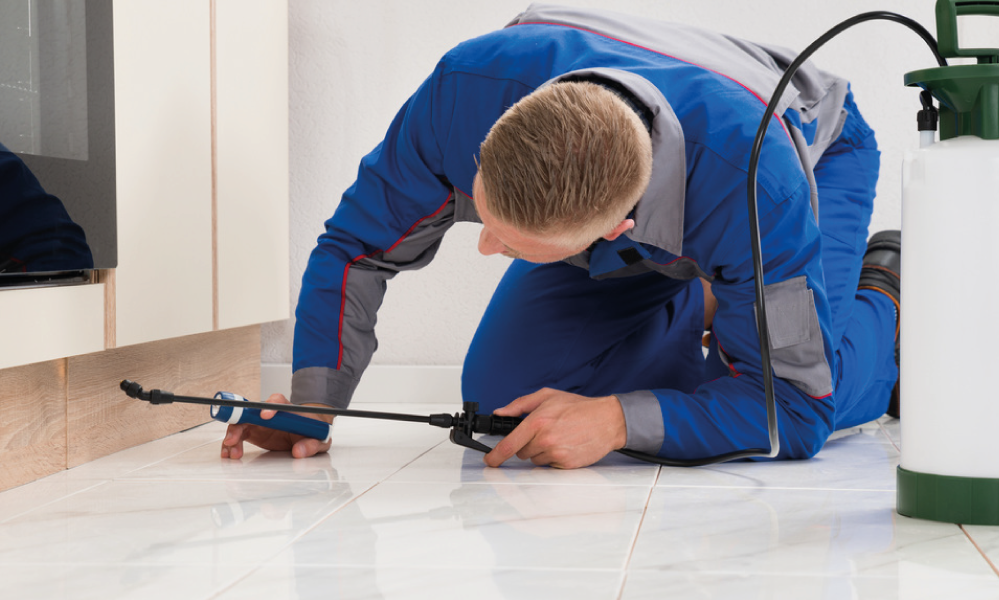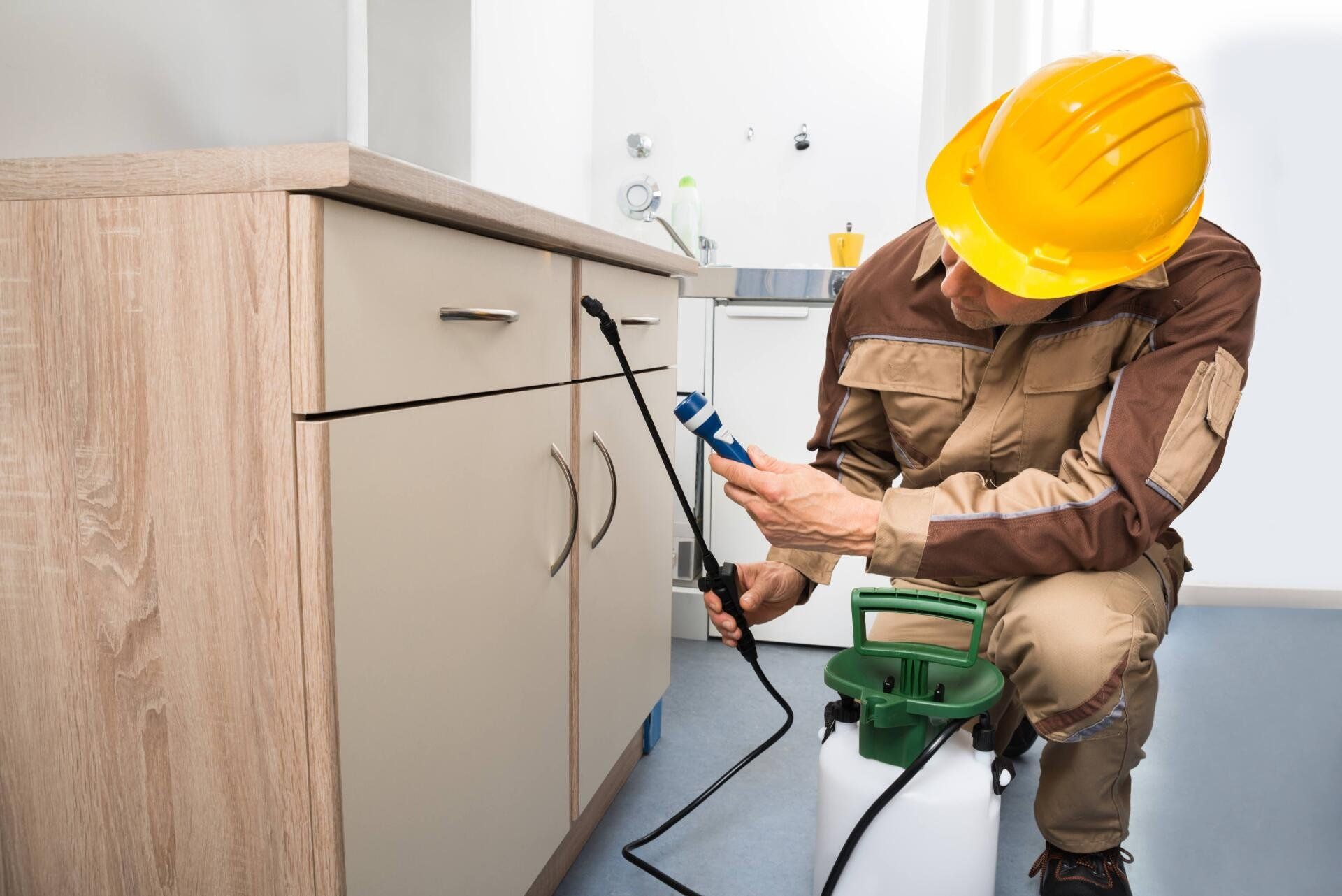Pest Control Clovis: Eliminate Pests Once and for All
Pest Control Clovis: Eliminate Pests Once and for All
Blog Article
Comprehending the Various Techniques to Parasite Control: A Comprehensive Guide

Natural Bug Control Techniques
Utilizing environmentally friendly techniques such as friend growing and biological pest control is crucial for successfully managing parasites in agricultural settings. Buddy planting involves expanding different plants in distance to deter parasites, improve nutrient uptake, and boost general plant wellness.
Organic pest control involves introducing all-natural predators or pathogens to control pest populaces. Ladybugs, for example, prey on aphids, controlling their numbers without the demand for chemical pesticides. Another instance is using Bacillus thuringiensis (Bt), a germs that targets certain insect pests while being harmless to humans, animals, and advantageous pests.
These environmentally friendly approaches not only decrease the dependence on synthetic chemicals yet also assist maintain biodiversity and soil health and wellness. By including natural parasite control techniques right into farming practices, farmers can accomplish lasting parasite management while reducing adverse effect on the atmosphere.

Chemical Insect Control Solutions
Along with all-natural parasite control methods, the use of chemical bug control remedies plays a significant role in efficiently handling pest populations in agricultural atmospheres. Chemical bug control remedies are created to target specific pests that may cause extensive damage to plants. These remedies often have synthetic pesticides that are created to get rid of parasites promptly and successfully.
Among the essential advantages of chemical pest control solutions is their effectiveness in regulating parasite problems widespread. Farmers can apply these solutions making use of numerous techniques such as splashing, airing out, or seed treatment to safeguard their plants from harmful pests, weeds, and conditions. Furthermore, chemical pest control solutions are relatively very easy to apply and can offer fast results, helping farmers guard their returns and decrease economic losses.
Nonetheless, it is important to utilize chemical pest control solutions carefully to minimize possible negative effect on the environment, non-target microorganisms, and human health. Appropriate application strategies, adherence to safety and security guidelines, and normal monitoring are vital to ensure the accountable usage of chemical insect control remedies in agricultural methods.
Organic Pest Control Approaches
Biological bug control approaches take advantage of all-natural killers or pathogens to handle parasite populations in agricultural settings properly. This technique supplies a sustainable and eco-friendly remedy to pest management, minimizing the reliance on artificial chemicals and decreasing harm to the environment. One typical organic control strategy is the intro of all-natural enemies, such as ladybugs or parasitic wasps, to target details insects. These killers eat the parasites, aiding to control their populations naturally - pest control clovis.
An additional biological control approach includes using virus like microorganisms, fungi, or infections to infect and eliminate pests. On the whole, biological pest control techniques supply a sustainable and targeted remedy to pest administration in farming.
Integrated Insect Monitoring (IPM)
Integrated Insect Administration (IPM) is a comprehensive technique that combines different bug control strategies to effectively handle and decrease pest populations in agricultural systems. IPM concentrates on lasting prevention of insects with a mix of biological, cultural, physical, and chemical control techniques. By incorporating these different methods, IPM intends to lower dependence on chemical pesticides, minimize environmental effect, and promote lasting parasite management methods.
One secret facet of IPM is making use of organic controls such as all-natural predators, parasites, and pathogens to regulate insect populations. This technique uses the power of nature to maintain a balance between insects and their natural opponents without triggering damage to the setting.
In addition, IPM involves social techniques like plant turning, hygiene, and environment manipulation to create unfavorable conditions for bugs and disrupt their life cycles. Physical controls such as traps, mulches, and obstacles are additionally made use of to stop bug invasions.
Physical and mechanical Insect Control Techniques
Making use of non-chemical techniques, such as mechanical and physical pest control strategies, is an important aspect of more helpful hints comprehensive bug monitoring methods, developing upon the foundation of Integrated Bug Administration's holistic technique. Mechanical insect control involves making use of physical barriers or catches to prevent pests from accessing and damaging plants or structures. This approach can include strategies like setting up screens on windows, making use of row covers in agriculture, or employing sticky catches to catch pests.
Physical insect control approaches, on the other hand, concentrate on straight eliminating bugs through physical ways. Utilizing heat therapies to get rid of bed insects or vacuuming up pests like spiders or ants can be effective methods to handle problems without the use of chemicals. By integrating these physical and mechanical insect control methods right into an Integrated Pest Administration strategy, specialists and people can decrease reliance on chemicals while still effectively handling pest populaces and decreasing damages.
Verdict

In enhancement to natural parasite control techniques, the utilization of chemical bug control solutions plays a substantial function in properly handling pest populaces in agricultural settings.One of the vital advantages of chemical parasite control services is their performance in managing parasite infestations on a additional info huge scale.Integrated Bug Management (IPM) is a thorough approach that incorporates various parasite control techniques to properly manage and lessen pest populaces in agricultural systems.Using non-chemical approaches, such as mechanical and physical bug control strategies, is a vital aspect of extensive parasite management methods, constructing upon the foundation of Integrated Insect Administration's all natural approach. By integrating these physical and mechanical useful link parasite control strategies into an Integrated Insect Monitoring strategy, individuals and professionals can minimize dependence on chemicals while still effectively lessening and taking care of pest populaces damage.
Report this page